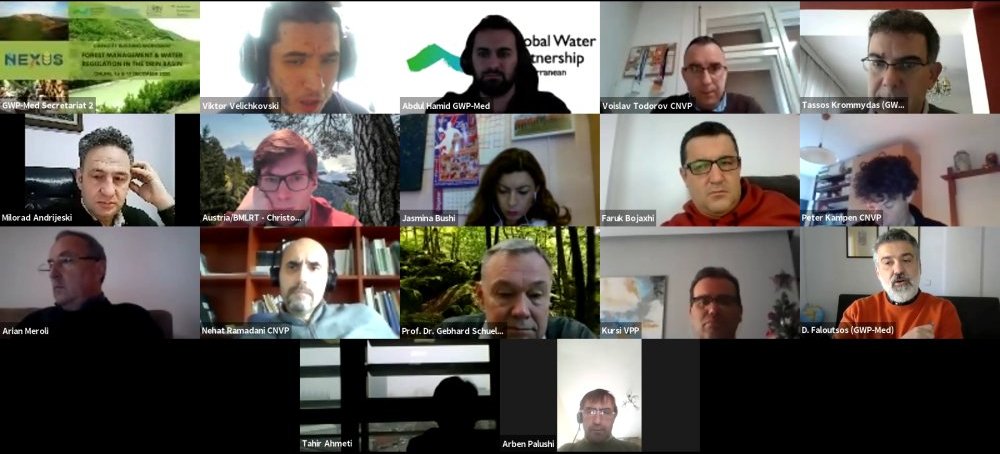Approximately 80 participants from related ministries, water agencies, institutions and NGOs as well as representatives from local government, academics and experts from Albania, Kosovo*, Montenegro and North Macedonia participated in the two-day Capacity Building Workshop on forest Management and Water regulation in the Drin Riverbasin, organized by GWP-Med and implemented by CNVP.
The workshop was organized in the framework of the project "Promoting the Sustainable Management of Natural Resources in Southeastern Europe, through the use of the Nexus approach” (SEE Nexus project) financed by the Austrian Development Agency (ADA) and implemented by the Global Water Partnership-Mediterranean (GWP-Med), in partnership with the United Nations Economic Commission for Europe (UNECE).

Presentations and discussions covered various aspects, from the relation between forest management and the EU Acquis, to forest hydrology and the factors influencing water management in forest ecosystems, the interlinkages between forest management, climate change and water management, as well as successful examples of sustainable forest management and its benefits. Data and studies were presented and discussed showing the role of forest management in ensuring protection against natural hazards like floods and soil erosion, which are prominent risks in the Drin basin. High rates of deforestation in recent years have become of increasing concern, with Albania given as an example where annual cutting of forests is 2-3 times greater than forest growth. The importance of transboundary cooperation was clearly highlighted, since sustainable forestry practices upstream can have important effects downstream in terms of preventing soil erosion, mitigating the risk of floods and improving the quality of water.
Forests provide considerable benefits to local economies and societies, including in mitigating agricultural land degradation and reducing costs of damaged infrastructures, however, it is considered that the forestry sector in the Drin basin is somewhat undervalued. Good practices and solutions were suggested to address this, such as “Payment for Ecosystem Services” as a tool for recognizing the hidden value of the forestry sector and supporting its protection and sustainable development. The practice of hazard zoning and Protective Forests was also presented, which have the designated function of protecting society and infrastructure from quantified natural hazards.
The implications of the EU Acquis for forest management in the region were analyzed, with focus on the EU Water Framework Directive and EU Habitats directive. This led to concrete recommendations on the need to coordinate monitoring programmes, particularly on assessment of ecological status and classification of water quality, and on the use of natural resources and protection of biodiversity; as well as coordinate planning, management and protection of water basins, including reservoirs for hydropower plants and rehabilitation of degraded areas around water basins.
Participants also had the opportunity to explore the use of GIS techniques and other innovative practices through a detailed demonstration.
Stakeholders agreed on the need for synergies and acknowledged the opportunity provided through the SEE Nexus project, in order to tackle a multitude of challenges in the Drin basin. The SEE Nexus project has already conducted a relevant qualitative analysis of inter-sectoral dynamics related to energy, forestry, and agricultural sectors. In its curent phase, the project explores in detail the interface of hydropower operations and flood management, as well as the issue of sustainable biomass and forest management, with the results are expected in 2021.
Download the Workshop’s Agenda and presentations, and watch the Webinar sessions.
